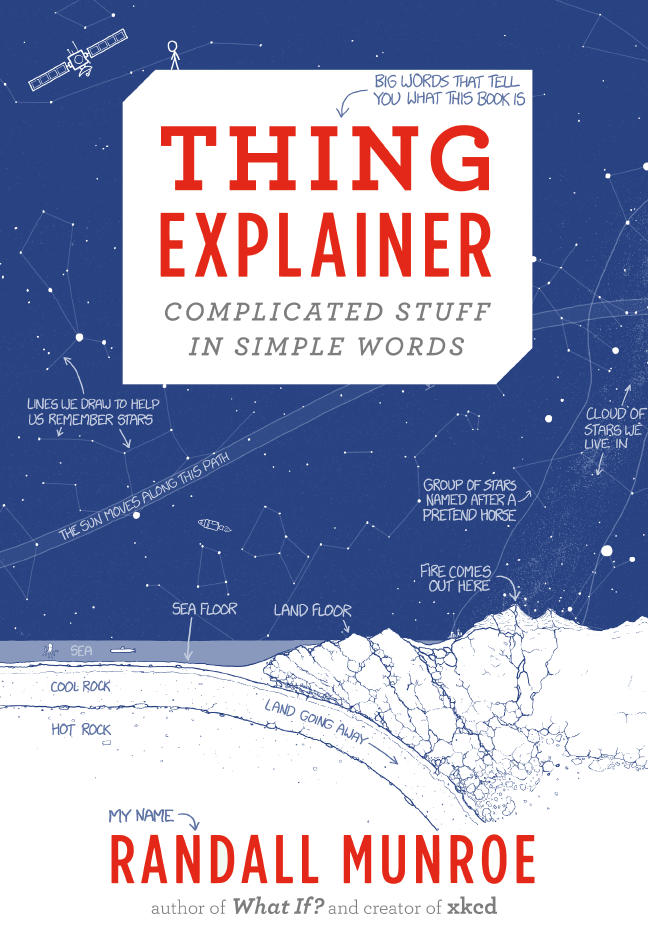I received Thing Explainer by Randall Munroe (of xkcd fame) as an anticipated birthday gift from my partner, and at first I was elated. I really liked Munroe’s earlier work, including the What If? series I thought was both technically accurate(ish) and entertaining. So more Munroe’s drawings? Some simple-but-clever writing constraint? I was sold.
This large format book contains simple yet highly detailed schematics-themed drawings of advanced engineering and natural science features like a nuclear plant or plate tectonics with written descriptions using a vocabulary voluntary limited to the 1,000 most common English words.
On paper it sounds accessible, however as I flipped the first couple pages, it immediately felt off to me. I was having trouble connecting the descriptions with my own knowledge of these topics I’ve been curious about my whole life and consequently learned a great breadth about. To make sense of some of them, I had to mentally convert Munroe’s quippy paraphrases into the correct engineering terms that didn’t make the 1,000 most common words cut.
Once I did, drawings felt more familiar and descriptions were more understandable and funny, and that’s when I realized this book doesn’t really explain that much. On the contrary, it expects readers to mostly already know about the subjects to “get” it. The problem is that the paraphrases used because of the writing constraint often become more complicated than the original words that aren’t obscure but didn’t pass the arbitrary 1,000 most common words threshold. So it definitely isn’t an accessible science and engineering vulgarization book, and while I personally am the perfect target audience for this book, I couldn’t help to feel like it’s sort of a condescending take on the actual illustrated vulgarization books I binged on when I was younger.
Still, I learned some interesting side facts on several pages, and the full-page drawings are painstakingly detailed as xkcd’s readers have come to expect, with several visual gags that lighten the mood of what I felt was otherwise mostly a contrived private joke for people already in the know. And of course I don’t regret supporting the work of Randall Munroe from whom I’ve been enjoying innumerable wholesome quips through his long-standing web comic I would whole-heartedly recommend for any STEM enthusiast.
But this book? I’d probably have enjoyed What If? as much with less extra guilt.
Official website for Thing Explainer by Randall Munroe

